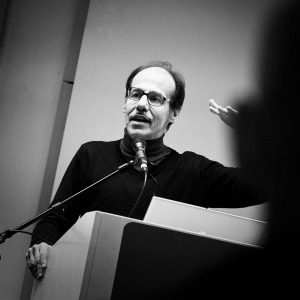‘Humanity 2.0’ refers to the title of my recent book, in which I present humanity as historically poised to re-negotiate its sense of collective identity. There are at least five reasons:
1. the prominence of digital technology in shaping everyday life and human self-understanding;
2. the advances (both promised and realized) in biotechnology that aim to extend the human condition, perhaps even into a phase that might be called ‘trans-‘ or ‘post-‘ human;
3. a growing sense of ecological consciousness (much of it promoted by a sense of impending global catastrophe);
4. a growing awareness of the biological similarity between humans and other animals, reviving doubts about strictly naturalistic criteria for demarcating the ‘human’; (
5. an increasing sense of human affection and sympathy migrating to animals and even androids, during a period when national health budgets are stretched perhaps to an unprecedented extent.
One major consequence of this major re-definition of humanity is that the political spectrum is in the process of realignment, with the old Right-Left divisions being replaced by Precautionary-Proactionary attitudes towards risk. In this new configuration, conservatives and ecologists stand with the Precautionaries, whereas libertarians and socialists stand with the Proactionaries.

Steve Fuller (born 1959, New York City) holds the Auguste Comte Chair in Social Epistemology in the Department of Sociology. He is most closely associated with the research program of social epistemology. Originally trained in the history and philosophy of science (Ph.D., 1985, University of Pittsburgh), he is the founder of the research program of social epistemology. It is the name of a quarterly journal he founded with Taylor & Francis in 1987, as well as the first of his books: Social Epistemology (1988), Philosophy of Science and Its Discontents, 2nd edn. (1993), Philosophy, Rhetoric and the End of Knowledge (1993; 2nd edn. with James Collier, Lawrence Erlbaum Associates, 2004), Science (1997), The Governance of Science: Ideology and the Future of the Open Society (2000), Thomas Kuhn: A Philosophical History for Our Times (2000); Knowledge Management Foundations (2002); Kuhn vs Popper: The Struggle for the Soul of Science (2003); The Intellectual (2005); The Philosophy of Science and Technology Studies (2006); The New Sociological Imagination (2006); The Knowledge Book: Key Concepts in Philosophy, Science and Culture (2007); Science vs Religion? (2007); New Frontiers in Science and Technology Studies (2007); Dissent over Descent (2008); The Sociology of Intellectual Life (2009); Science: The Art of Living (2010); Humanity 2.0: What It Means to Be Human Past, Present and Future (2011).
Fuller has organized two global cyberconferences for the UK's Economic and Social Research Council. He has spoken in 30 countries, often keynoting professional academic conferences, and has been a Fellow of the Royal Society of Arts since 1995. He was awarded a D.Litt. by Warwick in 2007 for significant career-long contributions to scholarship. He was appointed to the Auguste Comte Chair in Socal Epistemology in 2011, and is a Fellow of the Academy of Social Sciences. His writings have been translated into twenty languages. His book Kuhn vs Popper was named book of the month (Feb 2005) by the US magazine, Popular Science, The Intellectual was named a book of the year by the UK magazine New Statesman for 2005, and Dissent over Descent was named book of the week by Times Higher Education in July 2008.
